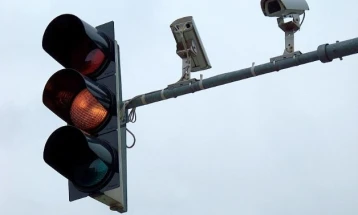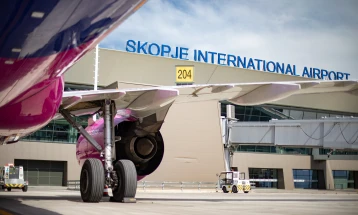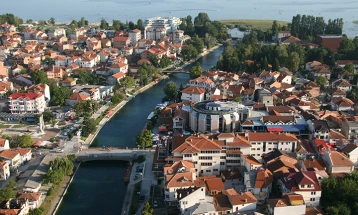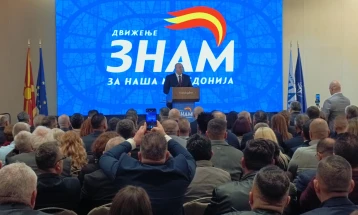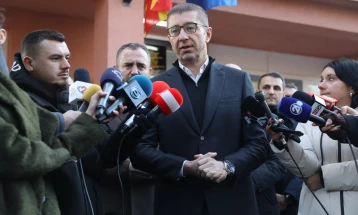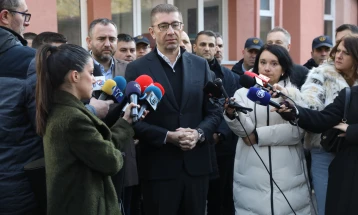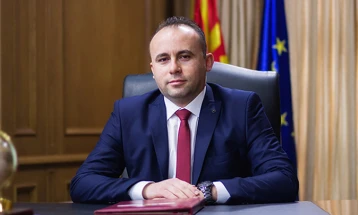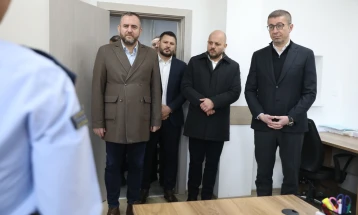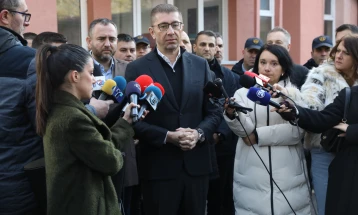Trajkovska: Interethnic tensions incited by other factors, not by religious communities
- Our country is an example of how religious communities can function excellently and be tolerant of each other and religious leaders play a great role because they are peacekeepers. Regardless of which religious community they come from, they always promote peace, coexistence and tolerance. Interethnic tensions arise from other factors, Olivera Trajkovska, head of the Commission for Relations with Religious Communities, says in an interview with MIA.
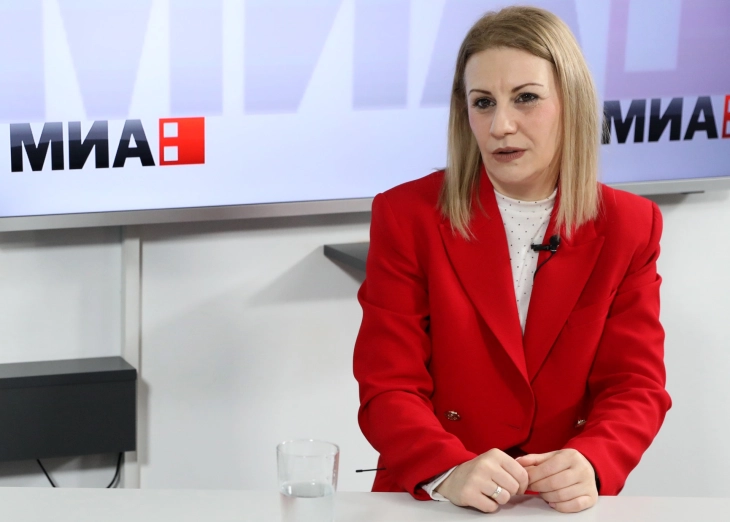
Skopje, 5 January 2025 (MIA) - Our country is an example of how religious communities can function excellently and be tolerant of each other and religious leaders play a great role because they are peacekeepers. Regardless of which religious community they come from, they always promote peace, coexistence and tolerance. Interethnic tensions arise from other factors, Olivera Trajkovska, head of the Commission for Relations with Religious Communities, says in an interview with MIA.
Trajkovska is of opinion that religious communities in the country have excellent cooperation and give each other support when it comes to key issues in the country.
"Macedonia is an excellent example of how religious communities, although different, can function excellently, respect each other, be tolerant of each other, be part of a society in which people express themselves in their own way, show their differences all the while representing one integral part," Trajkovska tells MIA.

Last December, police busted an ISIS-related group, which had planned terrorist attacks in the country and the region, according to the interior minister.
Trajkovska says that religious radicalism and fanatism is not in line with tradictional Islamic teachings. According to her, it is due to people leaving traditional religions, because religions in their core promote peace, love, goodness and respect.
"Unfortunately, lately, there are an increasing number of such cases, not only in Macedonia, but also around the world. I think it is mainly due to people leaving traditional religions, because religions promote peace, love, goodness and respect. Those who do not follow these principles will become supporters of some other teachings, which unfortunately undermine the normal courses of a society," adds Trajkovska.
Asked about religious radicalism in the country, Trajkovska says it falls under the jurisdiction of the competent institutions, namely the Interior Ministry and the National Security Agency. The Commission, she says, cooperates with them on the matter.
The Commission, she notes, has good cooperation with the Interior Ministry and the National Security Agency.
"Cooperation with the Interior Ministry and the National Security Agency is key. If we receive a response that a certain indivdual cannot be issued a permit to stay in the country, even if it involves a religious community, we won't approve residence. I believe this way we protect the country, protect peace and protect all the citizens of Macedonia," Trajkovska explains.

Police in this context act as a link between state institutions and the religious communities.
"The Commission is always at a disposal of the institutions about everything they believe should be addresses to us. We talk to each other about issues that are important and that should be forwarded to certain institutions in the country. In this context, police are the link between state institutions and religious communities," she says.
According to Trajkovska, interethnic tensions come from other factors, but not from the religious communities, because, as she emphasizes, religious communities always promote tolerance and peace.
"Even though we are a secular country, if there is a problem in any religious community, the Commission is at disposal and talks to the religious leaders trying to find a common solution that will ease interethnic and inter-religious conflicts. I believe the Commmission so far as responded to a certain extent and has been managing issues of this kind," says Trajkovska.
Asked to which extent calls for coexistence by religious leaders are stronger that the attempts by some political structures, Trajkovska notes that religious leaders play a key part in the country.
"Politicians manage state matters, but religious leaders manage religious matters. I think they play a huge part, because our religious leaders are a kind of peacekeepers regardless of whic religious community they come from. They always promote peace, coexietnce and tolerance," Trajkovska tells MIA.

According to the Constitution, the country recognizes five religious communities, including the Macedonian Orthodox Church - Ohrid Archbishopric, Catholic Church, Islamic Religious Community, Jewish Community and Evangelic Methodist Church. According to the Commission's registry, a total of 46 religious communities and groups are also registered.
The country on Monday celebrates the day before Christmas. Christmas Day falls on Tuesday.
In the interview, Trajkovska says Christmas is one of the most beautiful holidays that celebrates love, peace and family.
The Commission, she adds, is always present for all holidays, be it Orthodox Christian or otherwise.
Trajkovska wishes the citizens in the country ahead of Christmas personal and social peace filled with love and goodness.
Бисера Трајковска
Фото: Дарко Попов
Видео и монтажа: Владимир Рабасовиќ
